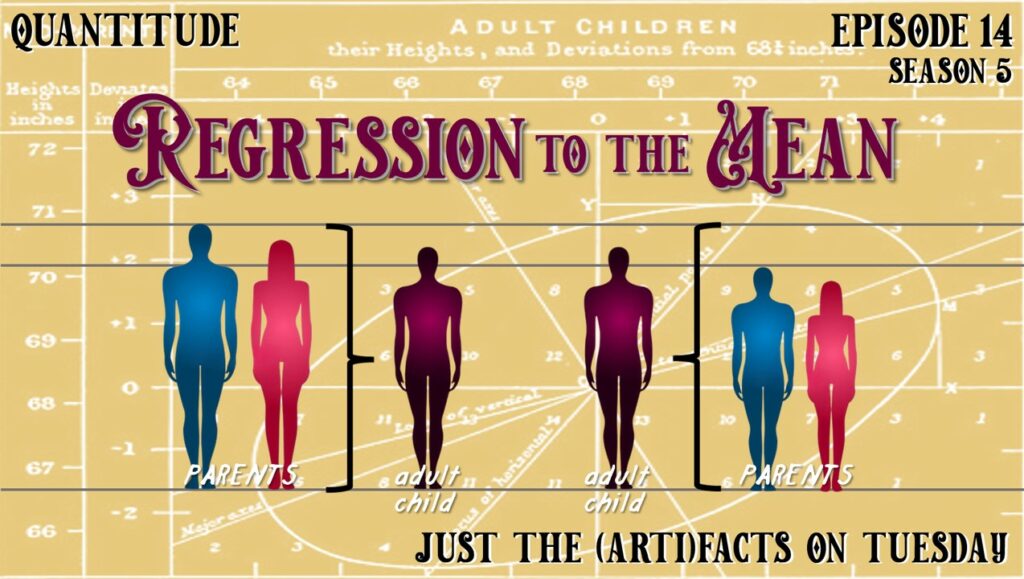In this week’s episode Greg and Patrick launch a new occasional series called Stuff You Should Know. The topic for today is regression to the mean: what the heck is it, how does it arise in every day life, and what can we do about it. Along the way they also discuss the space-time continuum, Kai Ryssdal, inflation, witches of MacBeth, the hidden curriculum, oh dang, sh*t (ummm…STUFF) you should know, SAT prep courses, the triumph of mediocrity, angstroms, blobs. reinventing history, and being patronizing.
Related Episodes
- S4E19: The Dark Art of Regression Diagnostics
- S4E17: Variable Transformations: Box-Cox, Fox in Socks
- S2E22: Outliers: And Then Things Got Weird
- S2E18: Regression: Like That Old High School Friend You’ve Outgrown
Suggested Readings
Barnett, A. G., Van Der Pols, J. C., & Dobson, A. J. (2005). Regression to the mean: what it is and how to deal with it. International journal of epidemiology, 34(1), 215-220.
Campbell, D. T., & Kenny, D. A. (2002). A primer on regression artifacts. Guilford Press.
Friedman M. (1992). Do old fallacies ever die? Journal of Economic Literature, 30, 2129-32.
Hotelling H. (1933). Review of The triumph of mediocrity in business by Secrist H. Journal of the American Statistical Association, 28, 463-465.
Kenny, D. A. (1975). A quasi-experimental approach to assessing treatment effects in the nonequivalent control group design. Psychological bulletin, 82(3), 345.
Morton, V., & Torgerson, D. J. (2003). Effect of regression to the mean on decision making in health care. Bmj, 326(7398), 1083-1084.
Nesselroade, J. R., Stigler, S. M., & Baltes, P. B. (1980). Regression toward the mean and the study of change. Psychological Bulletin, 88(3), 622.
Stigler, S.M. (1989). Francis Galton’s account of the invention of correlation. Statistical Science, 4, 73.
Stigler, S. M. (1997). Regression towards the mean, historically considered. Statistical methods in medical research, 6(2), 103-114.

